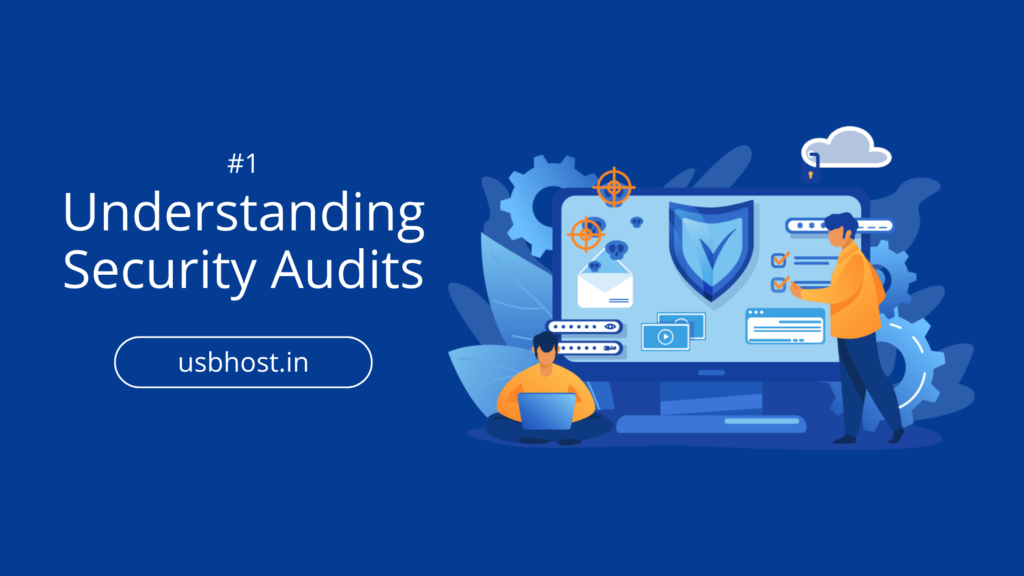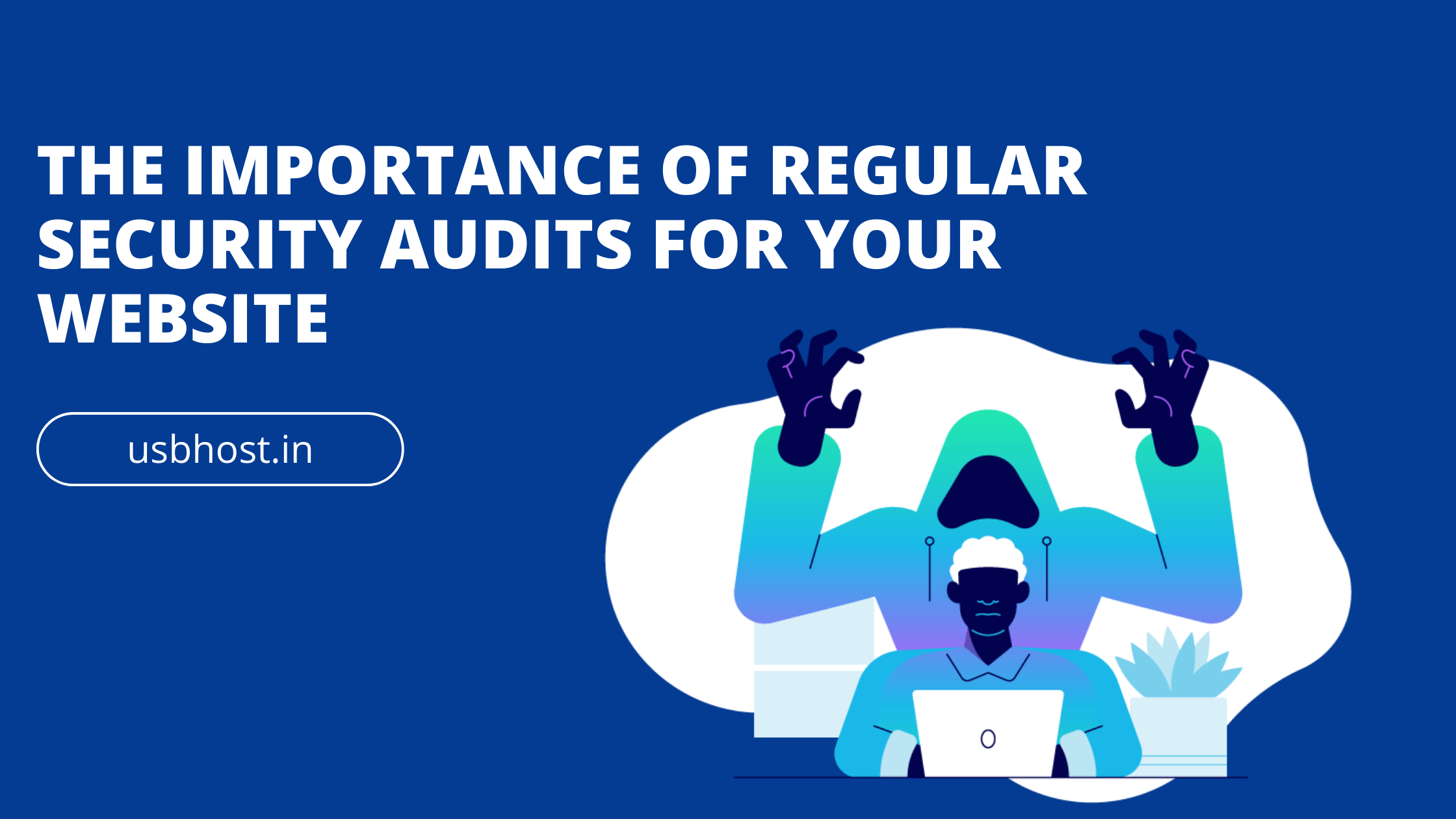Protect your digital fortress – explore the significance of routine security audits for your website and fortify your online defenses.
In the rapidly evolving digital landscape, where online presence is important for businesses and individuals alike, the security of websites has become a paramount concern. Cyber threats are becoming more sophisticated, and data breaches can have serious consequences, ranging from financial loss to reputational damage. In this digital age, websites serve as gateways to a wealth of sensitive information, making them attractive targets for malicious actors. To strengthen the digital fortress and protect against cyber threats, regular security audits have emerged as an important practice. In this blog, we discuss the importance of performing regular security audits for your website and how they contribute to the overall resilience of your online presence.
Table of Contents
Understanding Security Audits

Before discussing the importance of regular security audits, let us understand the concept of security audits. A security audit is a systematic assessment of the security of a company’s information systems, including its website. This involves a comprehensive review of the website’s infrastructure, codebase, and policies to identify vulnerabilities and assess the effectiveness of existing security measures. The primary goal is to ensure that the website is resilient to potential cyber threats and data breaches.
Identifying Vulnerabilities
Websites are complex ecosystems, consisting of various elements such as databases, servers, applications, and communication channels. Security vulnerabilities can emerge at any layer of this complex architecture. Regular security audits enable these vulnerabilities to be identified before they are exploited by malicious actors. Common vulnerabilities include outdated software, weak passwords, misconfigurations, and insecure coding practices.
Cybercriminals frequently enter networks using outdated software. Security patches and updates are released regularly to address newly discovered vulnerabilities. However, neglecting these updates can leave your website vulnerable to exploitation. Security audits help identify outdated software and prompt necessary updates, ensuring that your website remains robust against emerging threats.
Weak passwords are a permanent security concern. Through security audits, one can assess the strength of passwords used on a website, identify weak credentials, and implement stronger authentication practices. Additionally, misconfigurations, such as improperly configured server settings or insecure network configurations, can be detected and corrected, strengthening the overall security posture of the website.
Safeguarding Sensitive Data
Websites often handle sensitive information ranging from personal details to financial transactions. Protecting this data is not only a legal obligation but also important to maintain trust with users. Security audits play a vital role in ensuring the confidentiality and integrity of sensitive data.
Encryption is a key aspect of data security. Security audits assess whether the website implements strong encryption protocols to protect data during transmission and storage. In the absence of proper encryption, sensitive information becomes susceptible to interception by cybercriminals.
Additionally, security audits examine the storage practices of sensitive data. If user data is stored without adequate security, it becomes an attractive target for unauthorized access. Regular audits help enforce secure data storage practices and identify areas where additional security measures are needed.
Meeting Regulatory Compliance
The regulatory landscape related to data protection and online security is rapidly evolving. Various regulations, such as the General Data Protection Regulation (GDPR) and the California Consumer Privacy Act (CCPA), mandate stringent security measures for websites that handle personal data. Failure to comply with these regulations can result in serious legal consequences and reputational damage.
Enhancing Incident Response Preparedness
Despite best efforts, security incidents may still occur. In the event of a security breach, a quick and effective response is essential to minimize the impact. Regular security audits contribute to incident response preparedness by identifying potential weaknesses in the response plan.
By simulating various scenarios through penetration testing and vulnerability assessments, security audits help organizations fine-tune their incident response mechanisms. This proactive approach ensures that, when faced with a real threat, the organization can respond quickly and effectively, minimizing potential damage to both data and reputation.
Building and Maintaining Trust
Trust is a fragile commodity in the digital sphere. Users entrust their personal information to websites, and any breach of that trust can have long-term consequences. Regular security audits contribute to building and maintaining trust with users, by demonstrating a commitment to strong security practices.
Consumers are more inclined to interact, make purchases, and exchange information on a website that they believe to be safe. Conversely, a website with a history of security breaches may repel users, leading to a loss of credibility and business opportunities. Therefore, regular security audits serve as a proactive measure to promote a secure environment that encourages user trust and loyalty.
Conclusion:
In an era dominated by digital interactions, the security of websites cannot be compromised. Regular security audits are the cornerstone of a comprehensive cybersecurity strategy, helping organizations identify and remediate vulnerabilities, protect sensitive data, and ensure regulatory compliance. By investing in proactive security measures, businesses and individuals can strengthen their digital fortresses, build trust with users, and respond to the evolving threat landscape with flexibility. As the saying goes, “prevention is better than cure,” and in the field of cybersecurity, regular security audits embody this principle, acting as a proactive shield against the ever-present threat of cyber threats.
If you are looking for Fast and secure then click here
FAQs
1. Why are security audits important for websites?
Security audits are important for websites because they help identify vulnerabilities and weaknesses in the website’s infrastructure, codebase, and policies. By conducting regular audits, businesses and individuals can proactively address potential security threats, protect sensitive data, and strengthen their overall security posture.
2. What types of vulnerabilities can security audits identify?
Security audits can identify a variety of vulnerabilities, including outdated software, weak passwords, misconfigurations, and unsafe coding practices. If these vulnerabilities are not addressed, they can be exploited by malicious actors, leading to data breaches and other security incidents.
3. How do security audits contribute to data protection?
Websites often handle sensitive information, and security audits play a vital role in ensuring the confidentiality and integrity of this data. By assessing encryption protocols and storage practices, audits help protect sensitive data from unauthorized access and interception, thereby meeting regulatory compliance and building user confidence.
4. What role do security audits play in regulatory compliance?
The regulatory landscape for data security is evolving, with laws such as GDPR and CCPA mandating stricter security measures. Regular security audits help ensure that websites comply with these regulations by identifying and correcting potential compliance gaps, reducing legal risks, and demonstrating commitment to user privacy.
5. How do security audits contribute to incident response preparedness?
Despite preventive measures, security incidents may still occur. Security audits contribute to incident response preparedness by simulating various scenarios through penetration testing and vulnerability assessments. This proactive approach helps organizations improve their response mechanisms, ensuring quick and effective responses in the event of a security breach.
6. Can security audits enhance user trust?
Yes, security audits play an important role in building and maintaining user trust. Websites that are considered safe due to regular security audits are more likely to attract users who feel confident sharing their information. On the other hand, a history of security breaches can erode trust, leading to a loss of credibility and business opportunities.
7. How often should security audits be conducted?
The frequency of security audits depends on factors such as the complexity of the website, the nature of the data it handles, and emerging cybersecurity threats. However, as a general best practice, it is recommended to conduct security audits at least annually or whenever there are significant changes to the website infrastructure.
8. Are there automated tools available for conducting security audits?
Yes, there are various automated tools and platforms designed to perform security audits. These tools can scan for vulnerabilities, conduct penetration testing, and generate reports on potential security risks. However, it is necessary to combine automated tools with manual assessment to ensure a comprehensive assessment of website security.
9. What are the consequences of neglecting security audits?
Neglecting a security audit can have serious consequences, including data breaches, financial losses, legal repercussions, and reputational damage. Cyber threats are constantly evolving, and without regular audits to identify and remediate vulnerabilities, websites become more vulnerable to exploitation.
10. How can organizations get started with security audits for their websites?
Organizations can start by engaging cybersecurity professionals or firms that specialize in conducting security audits. These experts can thoroughly evaluate the website, identify vulnerabilities, and provide recommendations to enhance security. Additionally, it is important to invest in employee training on cybersecurity best practices to maintain a proactive security posture.

